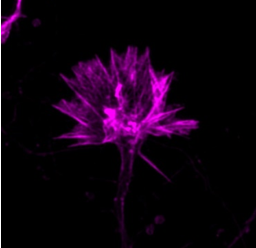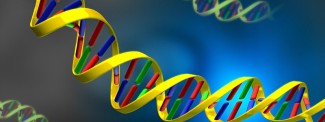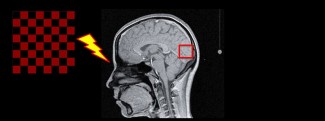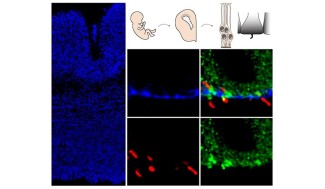Huntington’s disease has a triad of symptoms: motor, psychiatric and cognitive. These symptoms and their intensity and presentation vary widely between patients. The clinical signs of the disease generally appear between the ages of 30 and 50, but the disease can appear at any age from childhood to much later in life. Onset is before the age of 20 in 10% of cases, for example. Motor symptoms are the most visible, and often the first ones identified. However, cognitive or psychiatric problems may already be present. In the early onset forms of the disease (before the age of 20), the disease mainly presents as behavioral and learning disorders.
On average, Huntington’s disease progresses over a period of 13 to 15 years after the onset of clinical symptoms, although this figure varies widely between patients. It may involve severe dementia and an inability to walk and swallow, and culminates in the patient’s death.
Motor symptoms
The best known and most visible motor symptom is chorea. This disorder is characterized by sudden, jerky and involuntary movements of one or more body parts. As with all involuntary movements, external factors such as stress and intense emotions can aggravate this type of movement.
Other motor symptoms include impaired posture, gait or balance. The typical characteristics of this symptom are a jerky gait, facial grimacing, and an inability to move eyes voluntarily without blinking or moving the head forward. Also noticeable are significant problems with chewing and swallowing in the more advanced forms. These problems worsen as the disease progresses, until the patient is no longer able to perform movements that enable them to dress, wash or move around on their own, feed themselves or even communicate. This has a strong impact on the patient’s autonomy.
Cognitive symptoms
There are multiple cognitive impairments in Huntington’s disease and these particularly affect executive functions. Patients experience difficulties with reasoning, planning, performing complex tasks or several tasks at the same time, and with organizing their day-to-day activities. Language and visual perception problems may appear, and there is often a slowing down of information processing that results in taking longer to react to external stimuli. This cognitive decline usually leads to severe dementia in the advanced stages of the disease.
Psychiatric and behavioral problems are a prominent symptom in Huntington’s disease and often present before the motor symptoms. Anxiety, depression and apathy are the most common. Some patients may experience psychotic states with delusions (in 10% of cases), hallucinations, and obsessive disorders (in more than 15% of cases). These are similar to schizophrenia.
Other symptoms
Patients may experience other symptoms such as disruptions to sleep and circadian rhythm (biological processes that take place over a 24-hour period, such as the sleep-wake cycle, body temperature or hormone production), or weight loss.





